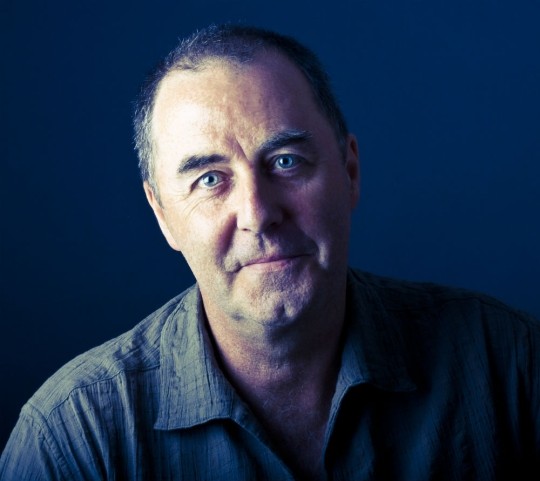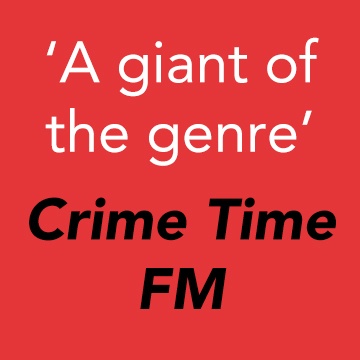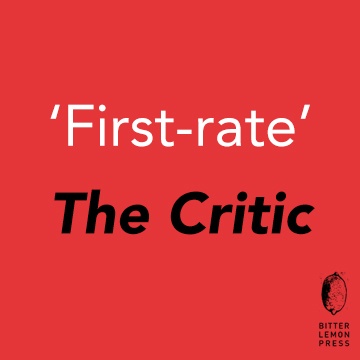Journalist turned teacher Steven Dunne writes some of the smartest serial killer novels around right now. Literate, complex and thoroughly absorbing, they’re must reads for fans of Mark Billingham or Thomas Harris. His third book, Deity, is out now and Steven was kind enough to join us for a chat…
Tell us a little about Deity…
Deity is about the search for four missing college students. After their disappearance they begin appearing on the internet in broadcasts on the Deity website where it seems they may have committed suicide. Under the surface the book is about our search for immortality. For young people, this means becoming famous and the internet is the best vehicle for that and Deity is about what young people are prepared to do to achieve that fame. To many youngsters, given the uncertainty of an afterlife, becoming an internet sensation and rattling around in cyberspace forever is their idea of immortality.
Damen Brook isn’t your typical crime fiction maverick. What prompted you to create such a self-contained lead?
I always loved reading Sherlock Holmes novels. I thought it was wonderful that after a couple of pages of sparring with Watson, Holmes was into a full blown case. That’s why I put Brook into a situation where distractions are kept to a minimum. He has baggage but it’s not excessive. He is an outsider, not from the local area, unable to make friends easily and he’s also highly intelligent, all traits that set him apart from colleagues. Also, he has a past in which he cared too much about a case and made terrible mistakes because of it, resulting in a nervous breakdown and the end of his marriage. Police work was the cause of all his problems, but it is also the solution to them because work leaves little time to brood on his difficulties. Thus we can get straight into the action.
The adolescent desire for immortality through fame is at the heart of Deity, what drew you to this subject?
The missing teenagers in Deity were drawn from my experiences as a teacher and I took great pains to make their struggle believable and sympathetic. As a teacher, I have observed and been fascinated by the desperation of young people to make their mark on the world, before they’re really equipped to do so. In lessons this may manifest itself in simple exhibitionism but it is still a way of saying “Look at me. I’m over here.” Their conversations are dominated by the antics of the rich and famous. So as teenagers, they see fame as a quick and failsafe way to let people know they exist. That instant fame and fortune means avoiding a lifetime of dreary work, is an added bonus.
You’ve pulled off a rare feat, writing credible teenagers, how did you go about researching that element?
That was easy. I work in a school and I watch and listen. I’m interested in the way teenagers see themselves and try to interact with a world that they haven’t really become a part of yet. Their obsessions with clothes, phones, music, even the correct cool word to use in a given situation, are slavish. Also, many affect an appalling amorality about what they see on TV and the internet but it is just for show, a protective mask they wear for the outside world. In a way, they are performing – for teachers, for parents, for each other and for their limited circle until they find out who they really are and can iron out their insecurities.
As a teacher, how do you see the rise of social media affecting your pupils?
Social media absorbs young people totally. But you have to remember, until they leave school, their world is tiny. They live with their parents near a school, and the school and surrounding area is their universe for 50 weeks of the year. Social media, TV and the internet offers a route into a wider world that they’re seeking to understand and claim their place in.
Parent/child relationships – often fraught ones – underpin the storyline, was that tough to explore?
In school we deal with all sorts of issues concerning parent/child relationships, most of them fairly mundane and at odds with the media’s portrayal of young people out of control. It was easy to put myself at the heart of this ancient struggle between teenagers, on the cusp of freedom and their parents trying to understand their offspring and curb their excesses.
You’re one of an increasing number of authors setting their work in – ahem – less glamorous cities, what did Derby give you as a location?
Derby is perfect. It has the wildness of the Peaks to the north and the city is compact enough to have a small-town neighbourly feel and is well integrated racially. Its population is straight talking and hard working – in short, Derby is a very pleasant place to live and work. Even better, there are no other thriller writers describing serial killers stalking its streets – yet – so I have the place to myself.
What can readers expect next from you?
More of the same I hope. I’m still exploring Brook’s personality and his relationship with his colleagues, his daughter and, of course with himself. The next instalment will see Brook working for Derby’s newly formed Cold Case Unit, against his wishes. That is until he uncovers a serial killer that no-one even knew existed.










